Premium Only Content
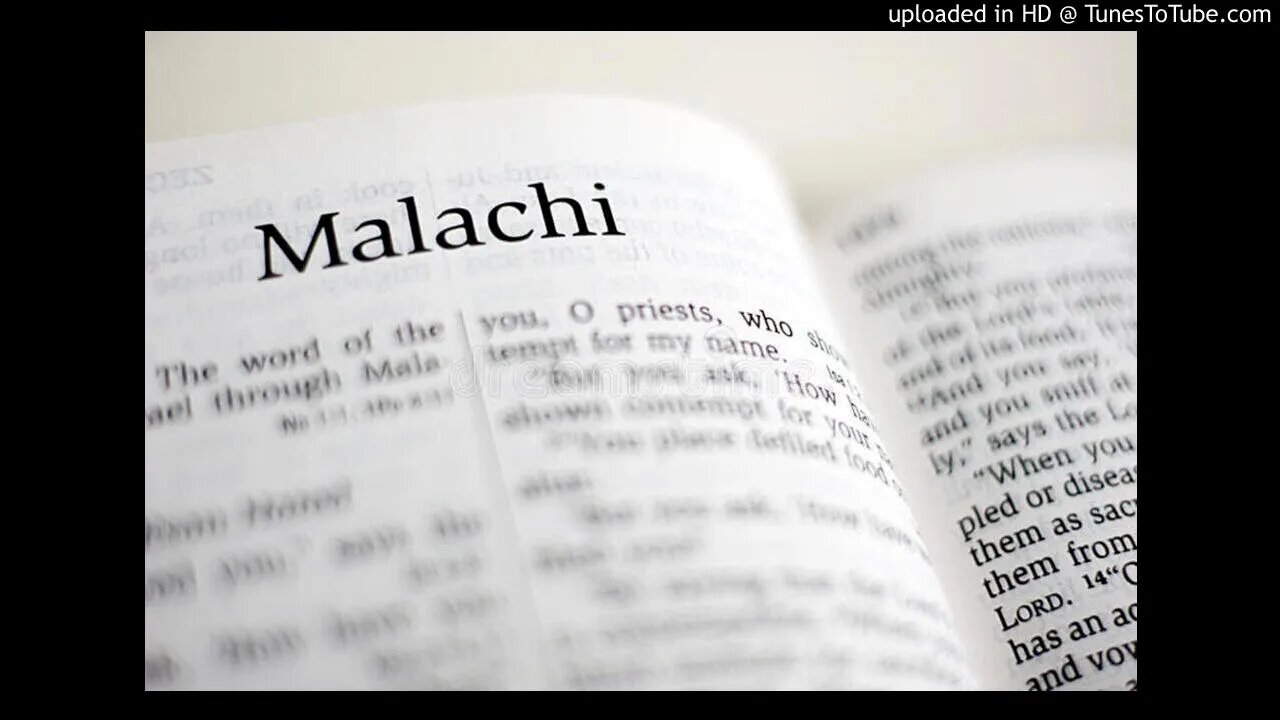
Book of Malachi - Last Bible Book Before New Testament
Malachi (or Malachias; מַלְאָכִי, Malʾaḫi, Mál'akhî) is the last book of the Neviim contained in the Tanakh, canonically the last of the Twelve Minor Prophets. In the Christian ordering, the grouping of the Prophetic Books is the last section of the Old Testament, making Malachi the last book before The New Testament.
The Book of Malachi was written to correct the lax religious and social behaviour of the Israelites – particularly the priests – in post-exilic Jerusalem. Although the prophets urged the people of Judah and Israel to see their exile as punishment for failing to uphold their covenant with God, it was not long after they had been restored to the land and to Temple worship that the people's commitment to their God began, once again, to wane. It was in this context that the prophet commonly referred to as Malachi delivered his prophecy.
In 1:2, Malachi has the people of Israel question God's love for them. This introduction to the book illustrates the severity of the situation which Malachi addresses. The graveness of the situation is also indicated by the dialectical style with which Malachi confronts his audience. Malachi proceeds to accuse his audience of failing to respect God as God deserves. One way in which this disrespect is made manifest is through the substandard sacrifices which Malachi claims are being offered by the priests. While God demands animals that are "without blemish" (Leviticus 1:3, NRSV), the priests, who were "to determine whether the animal was acceptable" (Mason 143), were offering blind, lame and sick animals for sacrifice because they thought nobody would notice.
In 2:1, Malachi states Yahweh Sabaoth is sending a curse on the priests who have not honored him with appropriate animal sacrifices: "Now, watch how I am going to paralyze your arm and throw dung in your face--the dung from your very solemnities--and sweep you away with it. Then you shall learn that it is I who have given you this warning of my intention to abolish my covenant with Levi, says Yahweh Sabaoth."
In 2:10, Malachi addresses the issue of divorce. On this topic, Malachi deals with divorce both as a social problem ("Why then are we faithless to one another ... ?" 2:10) and as a religious problem ("Judah ... has married the daughter of a foreign god" 2:11). In contrast to the book of Ezra, Malachi urges each to remain steadfast to the wife of his youth.
Malachi also criticizes his audience for questioning God's justice. He reminds them that God is just, exhorting them to be faithful as they await that justice. Malachi quickly goes on to point out that the people have not been faithful. In fact, the people are not giving God all that God deserves. Just as the priests have been offering unacceptable sacrifices, so the people have been neglecting to offer their full tithe to God. The result of these shortcomings is that the people come to believe that no good comes out of serving God.
Malachi assures the faithful among his audience that in the eschaton, the differences between those who served God faithfully and those who did not will become clear. The book concludes by calling upon the teachings of Moses and by promising that Elijah will return prior to the Day of Yahweh.
The book is commonly attributed to a prophet by the name of "Malachi," as its title has frequently been understood as a proper name, although its Hebrew meaning is simply "My Messenger " (the Septuagint reads "his messenger") and may not be the author's name at all. The name occurs in the superscription at 1:1 and in 3:1, although it is highly unlikely that the word refers to the same character in both of these references. Thus, there is substantial debate regarding the identity of the book's author. One of the Targums identifies Ezra (or Esdras) as the author of Malachi. Priest and Historian Jerome suggests that this may be because Ezra is seen as an intermediary between the prophets and the "great synagogue." There is, however, no historical evidence yet to support this claim.
Some scholars note affinities between Zechariah 9–14 and the Book of Malachi. Zechariah 9, Zechariah 12, and Malachi 1 are all introduced as The word of Elohim. Some scholars argue that this collection originally consisted of three independent and anonymous prophecies, two of which were subsequently appended to the Book of Zechariah as what they refer to as Deutero-Zechariah, with the third becoming the Book of Malachi. As a result, most scholars consider the Book of Malachi to be the work of a single author who may or may not have been identified by the title Malachi. The present division of the oracles results in a total of 12 books of minor prophets, a number parallelling the sons of Jacob who became the heads of the 12 Israelite tribes. The Catholic Encyclopedia asserts, "We are no doubt in presence of an abbreviation of the name Mál'akhîyah, that is Messenger of
-
 18:12:15
18:12:15
Chesterton Radio
1 year ago $4.09 earnedChesterton Radio Live - Christmas Mystery-Drama-Adventure-Comedy - Chuck the TV & Discover a Whole New World!
17.3K2 -
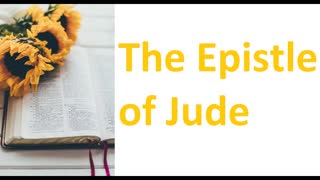 5:13
5:13
The Bible Channel
3 years agoThe Epistle of Jude, New Testament, Bible
181 -
 22:48
22:48
The Bible Channel
3 years agoThe Epistles of John, New Testament, Bible
16 -
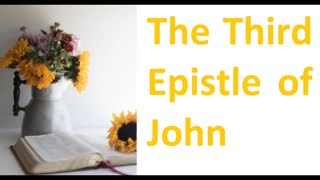 2:19
2:19
The Bible Channel
3 years agoThe Third Epistle of John, New Testament, Bible
19 -
 2:10
2:10
The Bible Channel
3 years agoThe Second Epistle of John, New Testament, Bible
15 -
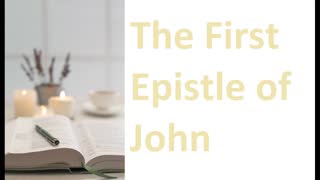 18:18
18:18
The Bible Channel
3 years agoThe First Epistle of John, New Testament, Bible
17 -
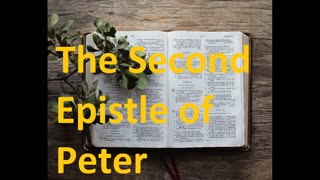 12:27
12:27
The Bible Channel
3 years agoThe Second Epistle of Peter, New Testament, Bible
12 -
 19:53
19:53
The Bible Channel
3 years agoThe First Epistle of Peter, New Testament, Bible
22 -
 17:35
17:35
itsSeanDaniel
1 hour agoPro-Transgender Doctor HUMILIATED by Genius Conservative
6.91K9 -
 LIVE
LIVE
GritsGG
2 hours agoWin Streaking! Most Wins 3499+ 🧠
37 watching